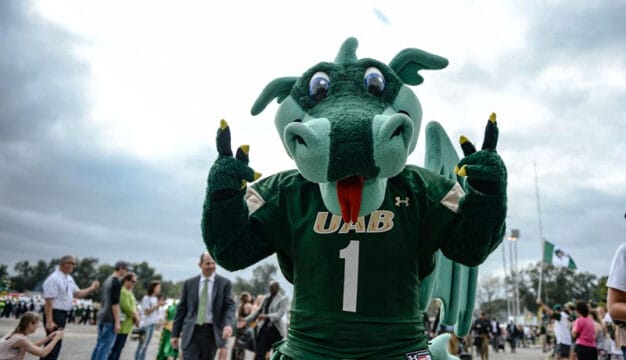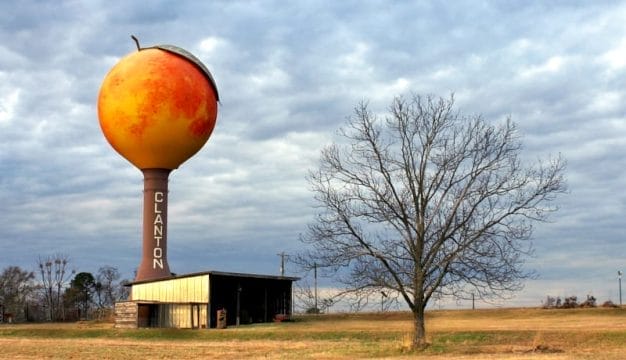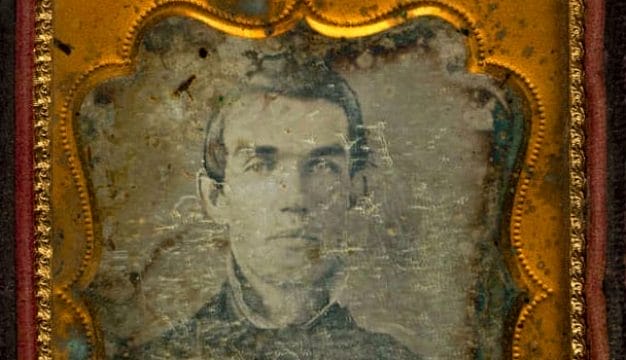George Lindsey
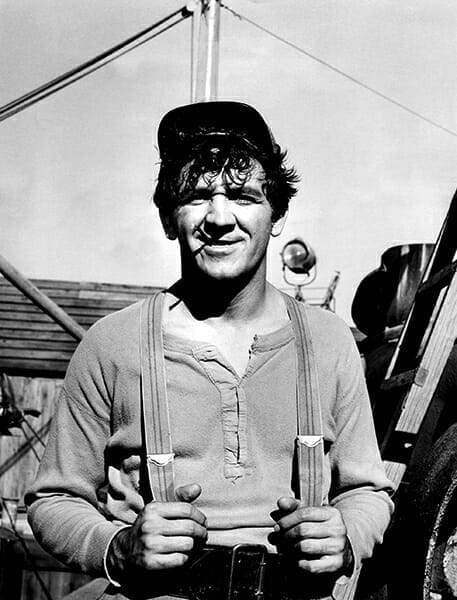 George Lindsey
Veteran character actor and north Alabama native George Lindsey (1928-2012) achieved his most lasting fame playing the character of Goober Pyle on television’s The Andy Griffith Show. In addition to that role, Lindsey performed on the stage and screen and lent his distinctive voice to numerous cartoon and animated film characters. Although he left Alabama after college, Lindsey remained active in charitable and cultural events in the state throughout his life, including establishing the George Lindsey Academic Scholarships at his alma mater, the University of North Alabama. In appreciation of his life and work, the university hosts the annual George Lindsey UNA Film Festival each spring.
George Lindsey
Veteran character actor and north Alabama native George Lindsey (1928-2012) achieved his most lasting fame playing the character of Goober Pyle on television’s The Andy Griffith Show. In addition to that role, Lindsey performed on the stage and screen and lent his distinctive voice to numerous cartoon and animated film characters. Although he left Alabama after college, Lindsey remained active in charitable and cultural events in the state throughout his life, including establishing the George Lindsey Academic Scholarships at his alma mater, the University of North Alabama. In appreciation of his life and work, the university hosts the annual George Lindsey UNA Film Festival each spring.
Lindsey was born in the midst of the Great Depression on December 17, 1928, in Fairfield, Jefferson County, to George Ross and Alice Smith Lindsey. His father had difficulty in keeping a job, and his mother suffered from the bone disease osteomyelitis. When George, an only child, was an infant, the family moved to Jasper, Walker County, where he was raised largely by his grandparents. As a boy, Lindsey displayed a keen sense of humor and comedic timing, and he spent many afternoons watching films in his local theater. He first became interested in acting after seeing the musical Oklahoma! in Birmingham at age 14. Lindsey also excelled at football during high school. Upon graduating, he entered Walker Junior College in Jasper, transferred to Kemper Military School in Boonville, Missouri, and finally transferred to Florence State Teachers College (now the University of North Alabama) after winning a football scholarship to play quarterback for the school’s Lions. Lindsey also began participating in the school’s theater productions, deepening his interest in acting.
 George Lindsey Film Festival Poster
After graduating in 1952 with a bachelor’s degree in secondary education and physical education, Lindsey enlisted in the Air Force and was stationed in Orlando, Florida, as a recreation director at Pinecastle Air Force Base. While there, Lindsey produced variety shows, performed stand-up comedy, and acted in local theater. He also met his future wife, Joyanne Herbert, in Orlando; they would have two children. Lindsey was discharged in 1956, and the couple returned to Alabama, where Lindsey took a position as a teacher and basketball coach at Hazel Green High School outside Huntsville. In the late 1950s, Lindsey and his wife moved to New York City. There, Lindsey enrolled in acting classes at the American Theater Wing and studied under legendary actress and teacher Helen Hayes.
George Lindsey Film Festival Poster
After graduating in 1952 with a bachelor’s degree in secondary education and physical education, Lindsey enlisted in the Air Force and was stationed in Orlando, Florida, as a recreation director at Pinecastle Air Force Base. While there, Lindsey produced variety shows, performed stand-up comedy, and acted in local theater. He also met his future wife, Joyanne Herbert, in Orlando; they would have two children. Lindsey was discharged in 1956, and the couple returned to Alabama, where Lindsey took a position as a teacher and basketball coach at Hazel Green High School outside Huntsville. In the late 1950s, Lindsey and his wife moved to New York City. There, Lindsey enrolled in acting classes at the American Theater Wing and studied under legendary actress and teacher Helen Hayes.
In addition to acting, Lindsey pursued training in voice and speech, ballet, and other activities relating to the dramatic arts. He was so successful in his studies and classwork that he earned the lead role in the culminating play of the program. After graduation, Lindsey landed small parts in local theaters and performed in comedy clubs and dinner theaters. His career began to take off when he won major roles in the off-Broadway musicals All-American and Wonderful Town. Lindsey stayed on with the touring company of the latter production, and when it closed in San Francisco in 1962, he decided to go to Los Angeles to pursue roles in television.
After signing with the powerful William Morris Agency, Lindsey appeared in small parts on several television shows, including The Rifleman and the Twilight Zone, and he appeared in the film Ensign Pulver in 1964. That same year, he won the role of Goober Pyle on The Andy Griffith Show. Despite his previous efforts to improve his voice and lose his southern accent, Lindsey ironically took on the persona of an uneducated “yokel,” a role that would define much of his film and television work for the remainder of his professional career. Lindsey had originally tried out for the part of Gomer Pyle, which went to fellow Alabamian Jim Nabors, and Lindsey’s character was written in three years after the show premiered as Gomer’s cousin. Goober became a popular character on the show, and Lindsey attracted attention and appreciation from fans back in Alabama by mentioning people and places from his home state on the show.
After a successful eight-year run, The Andy Griffith Show was cancelled in 1968. Many of the actors associated with the show, including Lindsey, simply moved their characters to a new series, Mayberry R.F.D., which starred Ken Berry in the lead role. The series ran for three years, and Goober Pyle remained a central figure in Mayberry’s civic and social life. His popularity helped Lindsey continue his career after the series was cancelled in 1971. That same year, he recorded a comedy album entitled Goober Sings! The recording brought him to the attention of the producers of the hit country-themed variety show Hee Haw, where Lindsey would spend the next 20 years as a cast member.
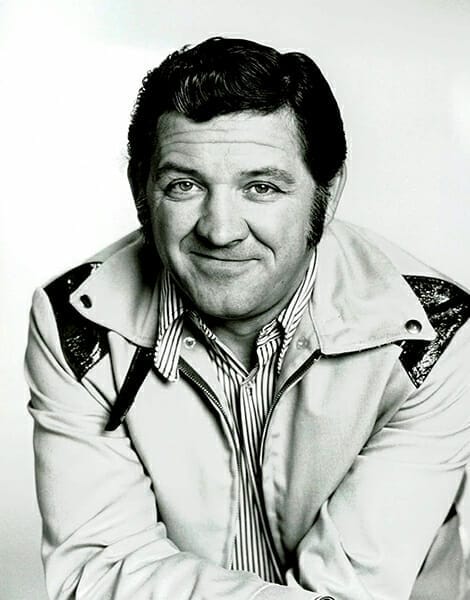 George Lindsey, 1973
In addition to his television work, Lindsey lent his voice to a number of animated Disney characters, most notably in The Aristocats (1970), Robin Hood (1973), and The Rescuers (1977), which also featured characters voiced by fellow Alabamian Pat Buttram. He also played guest roles on such series as M*A*S*H and Banacek and appeared in the films Take This Job and Shove It (1981) and The Cannonball Run II (1984), among others.
George Lindsey, 1973
In addition to his television work, Lindsey lent his voice to a number of animated Disney characters, most notably in The Aristocats (1970), Robin Hood (1973), and The Rescuers (1977), which also featured characters voiced by fellow Alabamian Pat Buttram. He also played guest roles on such series as M*A*S*H and Banacek and appeared in the films Take This Job and Shove It (1981) and The Cannonball Run II (1984), among others.
Although Lindsey lived in the Nashville area for most of his life, he maintained close ties to his north Alabama home. A strong supporter of the Special Olympics, Lindsey helped raise more than $1 million for the program in Alabama through the George Lindsey Celebrity Weekend and Golf Tournament, established in 1971. The event was held annually for 17 years in Montgomery and raised $50,000 for the Alabama Association of Retarded Citizens (now the Arc of Alabama). Always interested in supporting the arts, Lindsey helped to establish what was initially known as the George Lindsey/University of North Alabama Television and Film Festival in 1998. Events during the weeklong festival include screenings, panel sessions with industry professionals, and competitions for such categories as professional feature documentaries, feature screenplay, and young filmmaker.
Lindsey earned a number of awards for his achievements and philanthropy over the years. He was inducted into the Alabama Sports Hall of Fame in 1983 and in 1995 received the Governor’s Achievement Award from the Alabama Music Hall of Fame. The state of Alabama named a section of Birmingham’s Highway 78 as the “George Lindsey Highway.” He was the 2007 recipient of the first ICON Award presented by the Nashville Associations of Talent Directors. Lindsey died on May 6, 2012, in Nashville.

